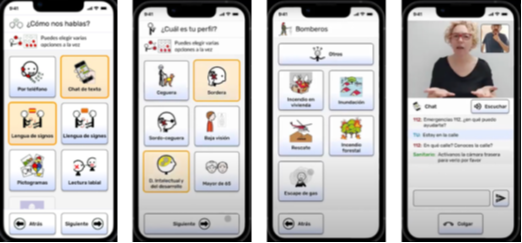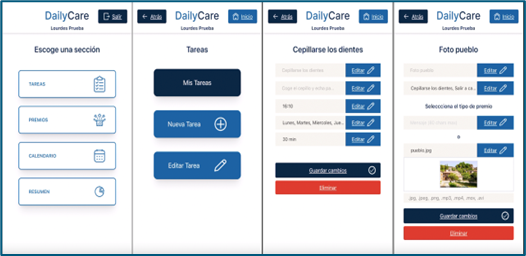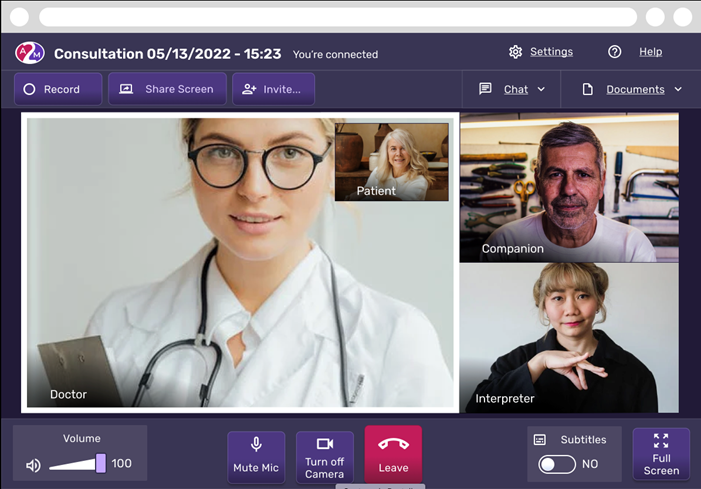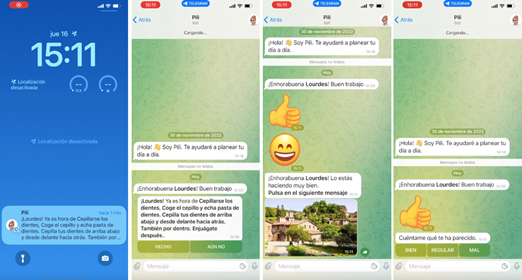Summary
- Profile Type
- Technology offer
- POD Reference
- TOES20250320022
- Term of Validity
- 9 April 2025 - 9 April 2026
- Company's Country
- Spain
- Type of partnership
- Research and development cooperation agreement
- Targeted Countries
- All countries
Contact the EEN partner nearest to you for more information.
Find my local partner
General information
- Short Summary
- A Spanish Research group working at intersection of Natural Language Processing (NLP), Human-Computer Interaction (HCI), cognitive accessibility, and universal access to digital content, products and services for people with disabilities is looking for a consortium for CL1-Health call HORIZON-HLTH-2025-01-STAYHLTH-01: Improving the quality of live of persons with intellectual disabilities and their families.
- Full Description
-
The group focuses on the intersection of Natural Language Processing (NLP), Human-Computer Interaction (HCI), cognitive accessibility, and universal access to digital content, products and services for people with disabilities. It explores innovative and cognitively accessible technologies that empower individuals with diverse cognitive profiles, as well as those with sensory, physical, or communication challenges, to interact with digital information. They apply advanced NLP techniques to simplify, enhance, and adapt content to meet individual user needs, ensuring that information is understandable and usable for people with cognitive disabilities, the elderly, and individuals with low literacy levels. It also works on accessible user interfaces, ensuring they align with European accessibility standards (e.g., EN 301 549) and regulatory frameworks to enhance usability, user experience and compliance with digital accessibility requirements. Their research contributes to more inclusive and equitable access to critical resources such as healthcare, education, and public services, ensuring that information is understandable, accessible, and adaptable to diverse user needs. They collaborate closely with disability organizations (ONCE, Plena Inclusión, Fundación AMAS, among others), accessibility experts and end-users to ensure technology that meets real-world needs and fosters a more accessible digital society.
The research group has led projects in the healthcare and intellectual disabilities domain involving requirements definition, solution design, and user evaluation in the healthcare domain, using various technologies. These include:
A telemedicine video conferencing platform, incorporating patient-oriented simplification of health documents. - Advantages and Innovations
-
The group can contribute to this call with:
• Innovative medical, technological, and digital solutions to reduce or reverse the severity of intellectual disabilities, especially in children.
• Focus on users with ICD-11 6A00: Disorders of intellectual development (including autism spectrum disorders).
• Support for patients and families, especially women in intensive caregiving roles.
• Development of technologies that empower people with intellectual disabilities:
o Assistive technologies
o Tools for autonomy and family support
o Cognitive-accessible and inclusive user interfaces
• Proven experience in digital tools (e.g., medication planners, dementia caregiver apps, emergency apps (112), telehealth platforms, generative AI-based tools).
• Expertise in accessibility, including sensory-cognitive combinations, and inclusive design thinking methods tailored to this population.
Development of “Guidelines to provide adequate support and training for caregivers (formal and informal), including issue of violence (to/from patients) and considering remote/rural areas (importance of proximity care). - Stage of Development
- Under development
- Sustainable Development Goals
- Goal 8: Decent Work and Economic Growth
- Goal 11: Sustainable Cities and Communities
- Goal 3: Good Health and Well-being
- IPR status
- No IPR applied
Partner Sought
- Expected Role of a Partner
-
The group is seeking to join an existing or forming consortium for the HORIZON-HLTH-2025-01-STAYHLTH-01 call. The group is not aiming to act as coordinator, but to contribute as a research partner.
The group’s role would focus on the applied research and development of inclusive digital solutions for people with intellectual disabilities and their families. Its contribution would be aligned with key areas such as:
• Participatory and inclusive design methodologies, involving people with intellectual disabilities in co-creation and evaluation processes.
• Application of accessibility and UX design techniques to develop user interfaces that are inclusive, standards-based (e.g., EN 301 549), and tailored to user needs.
• Development of demonstrators or proof-of-concept prototypes to explore and validate accessibility features in digital tools, in collaboration with technical partners.
• Expertise in content simplification methods, particularly through Natural Language Processing (NLP) techniques oriented to cognitive accessibility, including compliance with Plain Language (ISO 24495-1:2023) and Easy-to-Read standards.
• Design of training plans and accessibility guidelines, aimed at professionals, caregivers, and digital service providers, based on participatory design principles.
• Focus on co-occurring disabilities, integrating accessibility strategies that also address frequent sensory challenges (e.g. visual, hearing) that may be present alongside intellectual disabilities.
The group seeks a consortium including healthcare providers, social care institutions, technology developers, and user associations with a shared interest in accessibility, empowerment, and innovation for people with intellectual disabilities and their support networks. The group has established collaborations with a wide range of associations of persons with intellectual disabilities in Spain, facilitating user involvement and real-world validation. - Type and Size of Partner
- SME <=10
- SME 11-49
- SME 50 - 249
- Other
- University
- Big company
- R&D Institution
- Type of partnership
- Research and development cooperation agreement
Dissemination
- Technology keywords
- 01004001 - Applications for Health
- 01003018 - User Interfaces, Usability
- Market keywords
- 05007006 - Computer-aided diagnosis and therapy
- 01004001 - Local area networks
- 05007007 - Other medical/health related (not elsewhere classified)
- Sector Groups Involved
- Health
- Digital
- Targeted countries
- All countries



